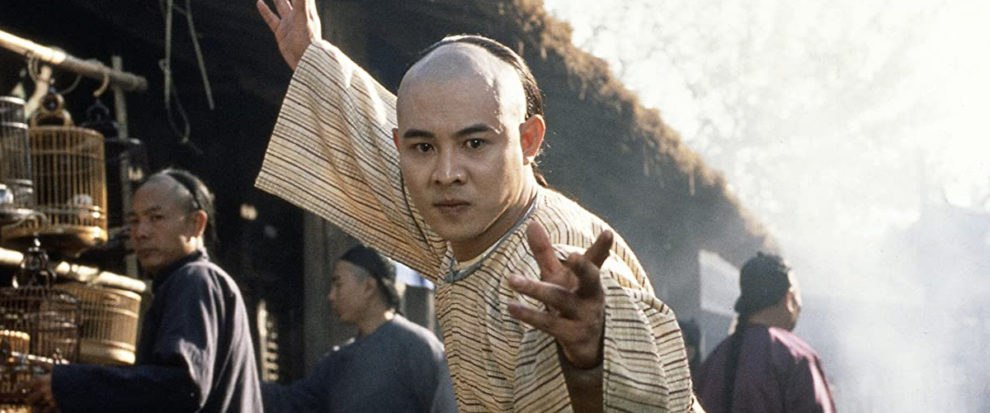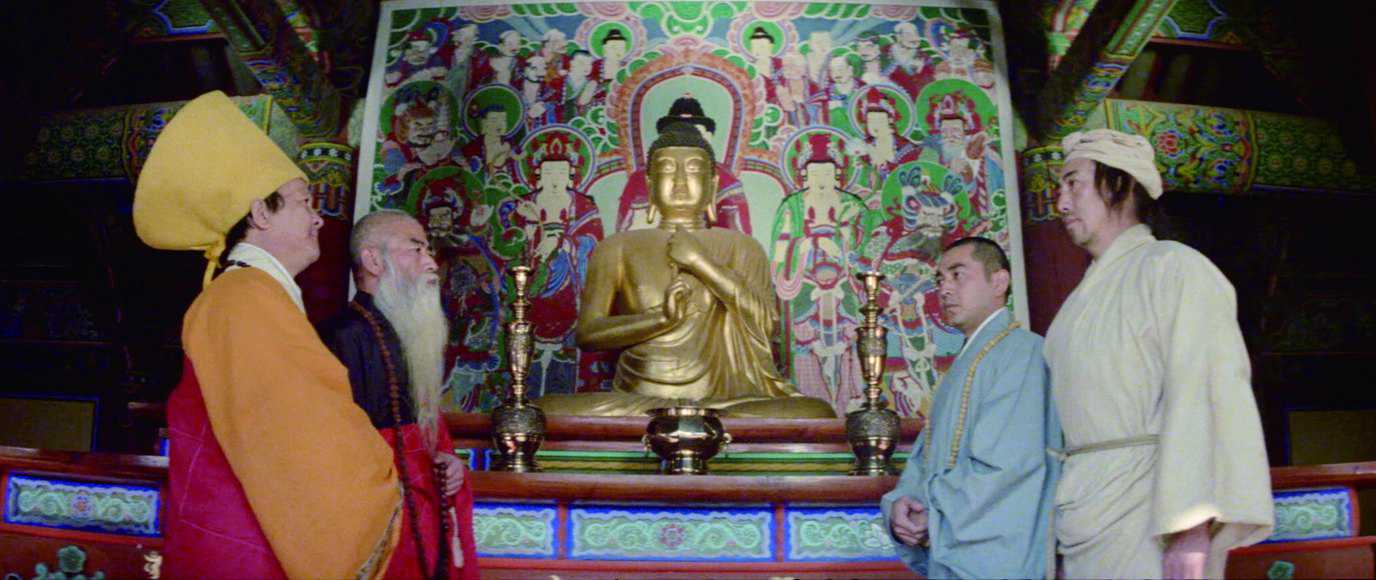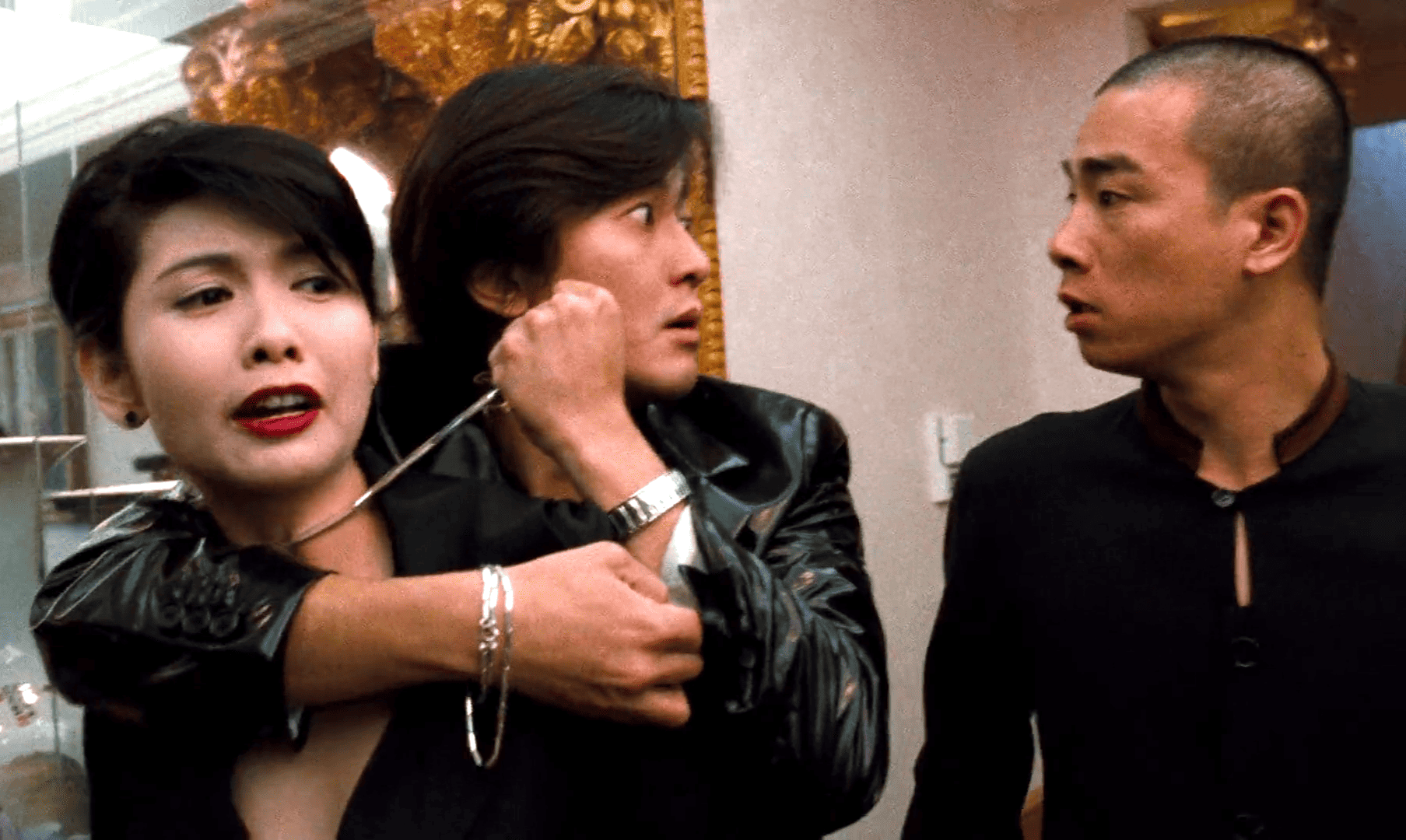With regard to the sheer amount of films he made in 1993, it is safe to say Jet Li was quite the success, especially after the first two parts of the “Once Upon A Time in China”-trilogy had been released in the years before. However, his career was just beginning to take off which is also due to his role on Corey Yuen's 1993 box-office hit “The Legend of Fong Sai-yuk”, also known simply as “The Legend” in many countries, a feature which not only received positive reviews at the time of its release, but was also honored with a Hong Kong Film Award and a Golden Horse Award for its action choreography. Combining the elements of the period piece to action and martial arts, it delivered a very popular blend of these genres and also gave Li a chance to show his qualities as a leading man, playing the titular role of Fong Sai-yuk, a talented fighter but also an inexperienced youth, telling a story about growth and resistance set in China's Qing Dynasty.
Buy This Title
Even though his father urges him to study and support his mother Miu Tsui-fa (Josephine Siao), young and brash Fong Sai-yuk (Jet Li) has other things on his mind, for example, practicing martial arts and meeting his friends. He also does not shy away from competitions which is how he meets Lui Ting-ting (Michelle Reis), who, unknown to Fong, is the daughter of Tiger Lui (Chen Sung-young), a hot-headed individual and businessman, who has continually oppressed the Cantonese in the district where Fong and his family live. His predilection for control and bullying extends to his own family as he forces his daughter to marry whoever is able to beat her mother in a martial arts-competition.
While the world of Fong revolves around his district and Lui Ting-ting, who he has fallen in love with, matters become more complicated (and violent) when her and his mother find out his father has been a member of the Red Flower Society, a rebellious movement aiming to overthrow the ruling emperor. In order to defend his family and eventually his people, Fong must accept his responsibility as son and also a possible key figure in the revolution.
When approaching a feature such as “The Legend of Fong Sai-yuk”, inspired by the legend of the popular Chinese folk hero, it is best to see this first part of his story as one dealing with growth and initiation. In the role of the titular hero, Jet Li manages to pull off a believable and quite relatable development for Fong Sai-yuk, from a brash youth, self-confident when it comes to matters like martial arts but less so with regard to taking responsibility and relationships, in particular to Liu Ting-ting, into a true fighter for freedom and independence. This kind of development is mirrored by the two parts of the story, with the first half being essentially an action-comedy, thriving thanks to Li's but also Josephine Siao's performance, and the second half reflecting the idea of Fong accepting his more vital role in a movement which goes far beyond the borders of the small world of the district where he used to live.
Although its storytelling can be quite convoluted at times, especially with the concept of masquerade and disguises, the combination of martial arts and politics works quite well. As we learn soon, much of the everyday routine in the district where Fong and his family lives is about the idea of repression and control. For Fong and his mother practicing martial arts becomes a powerful expression of their identity and thus their freedom, a notion emphasized in many sequences, for example, when a foreigner tries to steal from Miu's shop, and she has to teach him some manners. Besides being wonderfully executed and edited, these scenes strengthen the idea of resistance, of being independent, also with the occasional humor thrown into.

In the end, “The Legend of Fong Sai-yuk” is an entertaining martial arts feature/ period piece. Its impressive action scenes, its fight choreographies and the actor's performances, in particular Jet Li and Josephine Siao, demonstrate what was (and still is) possible within this genre.
















